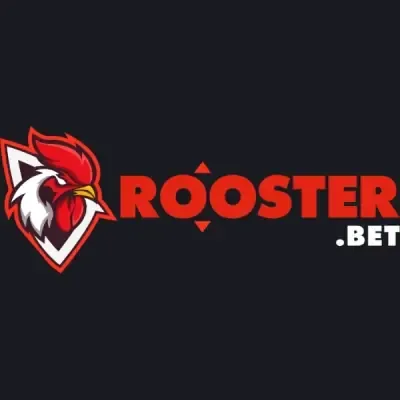
Digital asset investors need a greater understanding of Bitcoin (BTC) and Bitcoin Cash (BCH) differences due to the rapidly changing crypto markets of the modern age. Cryptocurrencies share a blockchain origin but exist with different purposes, attracting investors with different interests. Crypto investment universe investors need to identify the perfect match for their mission in 2025.
Analysis directs you to what cryptocurrency system is better than the rest and how it adapts to blockchain tech advancement. Bitcoin's primary focus is on management of market value through long-term investment. Yet Bitcoin Cash focuses on developing quick and economical peer-to-peer payment infrastructure.
Selecting the correct digital asset between these two depends on your investment strategy. It also depends on your personal goals, risk tolerance and knowledge of regulatory landscape and market trends.
Origins and Core Differences
The world's first decentralized digital currency, Bitcoin (BTC), launched in 2009. Blockchain technology was integrated into Bitcoin as a way to allow secure peer-to-peer transactions without middlemen in the financial market. Increased use of Bitcoin was hindered in having efficient processing for high transaction volumes. The foundational network constraints ignited internal communal discussions about finding ways to expand Bitcoin's infrastructure.
A group of developers and miners executed a 'hard fork' of Bitcoin in August 2017, which resulted in Bitcoin Cash (BCH). A hard fork occurred following Bitcoin developers' inability to agree on Bitcoin scalability features. Bitcoin SegWit optimization and Bitcoin Cash's block size boost to 8MB from 1MB resulted in increased transaction capacity per block.
Bitcoin Cash developers increased the size of its blocks because they wanted to optimize peer-to-peer transactions and hence offer Bitcoin with lower fees and faster speeds. Bitcoin Cash operates as a daily transaction platform alongside Bitcoin which continues its status as a prime cryptocurrency for value storage.
The crypto community shows different orientations through their ongoing expansion of Bitcoin Cash along with Bitcoin which continue to evolve separately. The cryptocurrency Bitcoin exists as a long-term investment asset, yet Bitcoin Cash works toward maximizing daily practical usage.
Anyone interested in crypto investing during 2025 needs to understand the basic distinctions between these technologies.
Did You Know Hedera Hashgraph is a next-generation distributed ledger technology (DLT) that promises blazing-fast speeds, near-instant transaction finality, unmatched security, and an eco-conscious footprint. See full details here!
Peer-to-Peer Payments: Utility in Daily Transactions
Bitcoin (BTC) and Bitcoin Cash (BCH) maintain peer-to-peer payment functionality but utilize distinct methods of daily transaction. Seven transactions per second (TPS) are facilitated by the Bitcoin network, but network congestion and increased fees arise when the system is fully operational.
Bitcoin Cash surpasses Bitcoin because it can process 200 TPS, thus providing better service for daily use.
Several dollars are equivalent to the current level of transaction fees Bitcoin users pay due to its lack of scalability. Bitcoin's transaction cost and speed make it impractical for daily expenditures such as morning coffee. Bitcoin Cash solves the transaction speed problem through its low cost per transaction process. The system's operational speed directly supports efforts to use cryptocurrencies as everyday payment instruments.
Crypto investors commonly treat Bitcoin as an investment asset, much like digital gold. Fortunately, Bitcoin's finite nature and dominant position in the marketplace attract investors desiring to accrue wealth for the long haul. Bitcoin Cash is a utility-level payment platform that promotes the financial decentralization of funds through functional use of money.
Both the cryptocurrencies ensure that transactions are confirmed through blockchain networks and allow an open-book-style financial processing. Bitcoin Cash attracts those consumers who need assets to function with ease as it provides an option to the dominance of Bitcoin in the market.
Your investment strategy in expanding cryptocurrency markets requires an understanding of the most significant differences between other digital assets.
Wonderful Bonus at BC.GAME: 300% bonus Up To $/€20,000
Bitcoin Scalability and Network Performance
The design of Bitcoin (BTC) creates problems regarding its ability to scale. One byte of data can fit in each Bitcoin blockchain block while blocks form at a rate of 10 minutes. The present system enables the network to handle between 3 and 7 transactions per second. This design constraint causes network congestion which produces slower processing of transactions with higher fees if combined with heavy usage times.
Lightning Network is among the solutions since after the creators became aware that Bitcoin was suffering from scalability challenges. According to the "Layer 2" technical solution, transactions are faster with less money required because they are off the main chain.
Lightning Network suggests the way to make Bitcoin more scalable, but adoption is subject to overcoming security issues and mass market adoption. The 2017 Bitcoin fork as Bitcoin Cash introduced a new method of scaling transactions. Transactions per block in the Bitcoin Cash network have higher amounts due to raising the block size limit from 8 megabytes to 32 megabytes.
The BCH development team made transactions quicker and lower in fees with the aim of making Bitcoin Cash ready for daily peer-to-peer money transactions.
Crypto Investing in 2025: Which One To Choose?
Bitcoin (BTC) leads the digital asset market in 2025 with its value reaching approximately $96,975. Bitcoin's dominant market position together with its broad user base attracts conservative investors who prefer long-term investments. Because of its restricted availability alongside decentralized operation many investors see Bitcoin as a gold-like store of wealth.
The rise of institutional investment has occurred because of this perception which has strengthened Bitcoin's credibility and stability. The Bitcoin Cash (BCH) network operates at a current exchange rate of $372.78 to promote more efficient peer-to-peer payment transactions.
The expansion of transaction processing capability thanks to an enlarged block dimension provides Bitcoin Cash a practical application for daily transactions. Lack of institutional backing and smaller market capitalization of BCH compared to BTC undermines its attraction for long-term investment potential.
Before investing in crypto, you must weigh your investment plan as well as your tolerance for risk. Bitcoin's proven track record in addition to institutional backing provides stability but Bitcoin Cash's focus on transaction speed presents opportunities for expansion in specific usage.
Diversification through investment in different assets reduces the effect of probable losses between these two assets with their unique features.
Crypto Risks and Regulatory Outlook
In 2025, BCH and BTC investments involve an understanding of different categories of crypto risks. Both the assets experience humongous price volatility in short time intervals. Investors are put to test by the crypto space in terms of cyber attacks, market manipulation, and scams. Everyone who wants to join the digital asset investing space needs to fully understand the potential risks specific to crypto assets.
The crypto landscape is experiencing fundamental changes because of new regulations passed by governing bodies. The United States has introduced new policies that establish more specific framework rules for digital assets. National financial strategies now include cryptocurrency elements through the implementation of the Strategic Bitcoin Reserve.
The current regulatory environment features complexity because stakeholders continue to discuss proper classification frameworks and supervising structures. Regulatory proposal forms part of an overall crypto-regulatory push to enhance market integrity. Regulatory steps establish boundaries that decrease the availability and marketability of cryptocurrencies to those investing.
Claim BitStarz Bonus: 25 No Deposit Free Spins
An understanding of these scenarios necessitates investors to come up with a strategic investment plan. Investors need to be aware of recent regulatory requirements and measure the willingness to risk money when making decisions regarding the long-term destiny of the digital assets.
By this approach, investors maximize their ability to deal with the changing nature of decentralized finance and select alternatives that meet financial objectives.
Trading Platforms and Accessibility
In 2025, Bitcoin (BTC) and Bitcoin Cash (BCH) are available through a number of trading platforms. Coinbase, Kraken, and Binance are major cryptocurrency exchanges. They support BTC and BCH through user-friendly interfaces with strong security measures.
Through their user-friendly interfaces, these sites provide services for investors of every level of expertise so that they can easily have access to digital assets. The crypto investing platforms CEX.IO and Uphold deliver supplemental investor services. It adds brokerage functionality and multi-chain trading capabilities.
The platforms provide key enhanced capabilities that boost trading operations through adaptable design options and practical features. Mobile applications on these platforms enable investors to handle their investments. This fills the demands for simple and simple trading opportunities on the part of customers.
Crypto regulations have redirected the way that these platforms engage in business with the access provided to customers. The shift in regulation has opened up blockchain technology to new uses. It allows digital assets to gain recognition from deeply rooted financial market participants.
Claim $75,000 Weekly Raffle at Stake
Crafting Your 2025 Investment Strategy
Bitcoin (BTC) leads the digital asset market space by trading within the value range of $100,000 in 2025. The widespread adoption along with its dominant market stance positions Bitcoin as an attractive investment choice for investors who plan to hold for the long-term.
Bitcoin drew many investors who see it as an equivalent to gold because it has both limited supply and decentralized operation. Institutional investors have begun to see Bitcoin's value which has boosted its legitimacy and made it more stable. Bitcoin Cash (BCH) operates at $373 meanwhile it services peer-to-peer payments through efficient and affordable transactions.
Due to its larger block size Bitcoin Cash enables enhanced peer-to-peer payment speed which makes it suitable for regular use. The investment potential of BCH remains limited because of its lower market capitalization combined with sparse institutional backing.
Before starting crypto investments you need to examine both your investment plan and risk management capabilities. Between Bitcoin's conventional strength and wide institutional recognition and Bitcoin Cash's emphasis on efficient transactions you can potentially find stability for specific use cases.
The benefits and drawbacks of these assets remain individual to each choice while portfolio segmentation helps you manage security risks.
Conclusion
Your investment between Bitcoin or Bitcoin Cash for 2025 should begin with research-driven planning. Digital economy participants can find distinct benefits alongside challenges together with future prospects from each of these coins. Performing side-by-side analysis of these factors enables you to create an effective risk management strategy which meets your goals.







